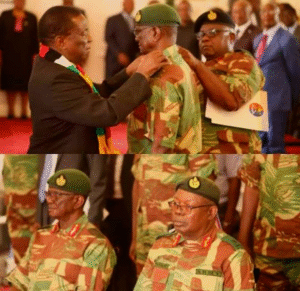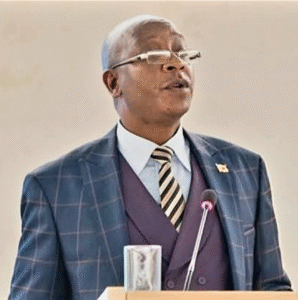SPEAKER AND CHIEF WHIP BLOCK DEBATE ON REINSTATEMENT OF RECALLED MPS

In a significant display of political tension, Zimbabwe’s parliamentary leaders, Speaker Jacob Mudenda and Zanu PF Chief Whip Pupurai Togarepi, confronted opposition CCC Harare West MP Joana Mamombe during a heated exchange. This confrontation arose after Mamombe raised questions about the reinstatement of 23 opposition MPs who were previously recalled. These events unfolded against the backdrop of a recent ruling by the Inter Parliamentary Union (IPU), which called for the MPs’ return to their legislative roles.
The IPU, representing national parliaments globally, issued a report in March by its Committee on the Human Rights of Parliamentarians, which criticized the removal of the CCC MPs. The report highlighted that the actions taken against these MPs were influenced by the whims of a self-appointed opposition party secretary-general, Sengezo Tshabangu. His decisions received backing not only from Parliament but also from the judiciary, executive, state security forces, and other opportunistic figures, resulting in a broad institutional endorsement of these controversial recalls.
During the parliamentary session, Mamombe endeavored to address the issue by referencing the IPU’s findings and its implications for Zimbabwe’s commitment to parliamentary integrity and human rights. However, her attempt was swiftly intercepted by Togarepi, who questioned the relevance and appropriateness of revisiting IPU-related discussions that he claimed had been previously settled in the parliamentary committee.
Speaker Mudenda supported Togarepi’s objection, asserting that Zimbabwe had adequately responded during the IPU Assembly and that the matter was conclusively adopted without further debate. This stance effectively stifled further discussion within the session, leaving Mamombe unable to fully articulate her concerns, a move she protested as premature dismissal of her point of privilege.
The IPU’s report in March articulated deep concerns about the manner in which the MPs were recalled, suggesting that these actions violated fundamental principles such as the free representational mandate and freedom of expression—principles that the IPU vigorously defends. The report was especially critical of the justification for accepting a dubious letter from an individual allegedly unaffiliated with the concerned MPs’ party, which led to their recall. It also expressed confusion over the haste with which the parliamentarians were ousted and highlighted the lack of debate on this critical issue.
Furthermore, the IPU requested additional clarifications from the National Assembly and Senate, indicating unresolved issues and a lack of transparency in the recall process. These developments came after an initial letter from Nelson Chamisa, former CCC leader, which could have influenced a different decision by Mudenda had it been considered timely. Chamisa’s letter, which identified Tshabangu as an impostor, was reportedly dismissed because it was received after the recalls had been executed, despite being dated three weeks prior.
This parliamentary episode is emblematic of broader systemic issues within Zimbabwe’s political landscape, where the independence of the judiciary is being questioned, and civic space is shrinking, especially in the context of the disputed 2023 elections and ongoing violations against opposition parliamentarians.
As Zimbabwe continues to navigate these complex political waters, the international community, represented by bodies like the IPU, remains a crucial observer and commentator on the state of human rights and democratic processes within the country. The outcome of this parliamentary debate and the subsequent actions by Zimbabwean authorities will likely have significant implications for the nation’s international standing and internal political stability.




